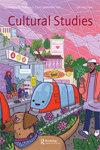Automated culture: introduction
IF 1.2
3区 社会学
Q1 ANTHROPOLOGY
引用次数: 1
Abstract
ABSTRACT Automation has a long history in cultural production, but the contemporary moment presents a range of new possibilities and demands for the deployment of automated and autonomous systems in the shaping of our cultural and social worlds. The cultural implications of the deployment of automated systems for producing, curating, and distributing a growing range of cultural texts and artifacts extend beyond the realm of content to encompass their pace, rhythm, and scale. Understanding the significance of these shifts remains a central task for cultural studies research that builds on the field’s historical engagement with the entwinement of cultural practices, social relations, and power. This theme issue builds on the historical and recent concerns of cultural studies to provide a range of approaches to the cultural significance of automation. Given the scope of the transformations, the coverage of possible topics is indicative rather than exhaustive. The articles in this collection range across the realms of automated news curation, credit scoring, image curation, deep fakes, data science, the gig economy, and content moderation. They engage with possible responses to the real and potential pathologies of automation in the cultural realm – while highlighting the links between culture, politics, and economics. Taken together they develop a range of critical approaches to the sometimes creeping, sometimes galloping automation of cultural production, curation, and distribution. While stressing the moments of historical continuity with earlier forms of bureaucratic and administrative rationality, they simultaneously indicate that we are, in many ways, still in the very early stages of a process that is likely to encompass an expanding range of cultural practices and texts.自动化文化:简介
自动化在文化生产中有着悠久的历史,但在塑造我们的文化和社会世界的过程中,当代时刻呈现出一系列新的可能性和要求,即部署自动化和自主系统。为生产、策划和分发越来越多的文化文本和文物而部署自动化系统的文化含义,超出了内容的范围,涵盖了它们的速度、节奏和规模。理解这些转变的意义仍然是文化研究的中心任务,它建立在该领域与文化实践、社会关系和权力纠缠的历史参与的基础上。这个主题问题建立在文化研究的历史和近期关注的基础上,为自动化的文化意义提供了一系列方法。鉴于转换的范围,可能的主题的覆盖是指示性的,而不是详尽的。本文涵盖了自动新闻管理、信用评分、图像管理、深度造假、数据科学、零工经济和内容管理等领域。他们在强调文化、政治和经济之间的联系的同时,对文化领域中自动化的真实和潜在病态进行了可能的回应。他们共同开发了一系列关键的方法,以应对文化生产、策展和传播的自动化,这些自动化有时缓慢,有时飞速。在强调与早期官僚和行政理性形式的历史连续性的时刻的同时,它们同时表明,在许多方面,我们仍然处于一个过程的早期阶段,这个过程可能包括不断扩大的文化实践和文本范围。
本文章由计算机程序翻译,如有差异,请以英文原文为准。
求助全文
约1分钟内获得全文
求助全文
来源期刊

Cultural Studies
Multiple-
CiteScore
3.50
自引率
6.70%
发文量
0
期刊介绍:
Cultural Studies is an international journal which explores the relation between cultural practices, everyday life, material, economic, political, geographical and historical contexts. It fosters more open analytic, critical and political conversations by encouraging people to push the dialogue into fresh, uncharted territory. It also aims to intervene in the processes by which the existing techniques, institutions and structures of power are reproduced, resisted and transformed. Cultural Studies understands the term "culture" inclusively rather than exclusively, and publishes essays which encourage significant intellectual and political experimentation, intervention and dialogue.
 求助内容:
求助内容: 应助结果提醒方式:
应助结果提醒方式:


